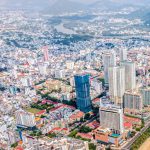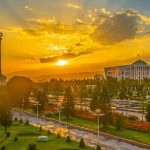Introduction
The Asian experience is full of adventure, from urban explorations through bustling cities to serendipitous landscapes with rich cultural experiences that are sure to be truly rewarding. But getting the most out of retirement in this vast and varied region really does depend on good financial management being intrinsic to how you manage your assets. Good planning will ensure that you have adequate provisions to enjoy the lifestyle you want, meet unexpected expenses, and enjoy your retirement without any stress. This paper discusses the issue of good money management while retiring in Asia, considering the need for budgeting, dealing with currency exchange, understanding local costs, and being financially secure for the long term.
Budgeting for Retirement Abroad
One of the basics of financial planning for retirement in Asia is the need to establish a comprehensive budget. In contrast with retirement in your homeland, there are additional factors: different cost structures, currency exchange rates, and categories of expenses that may be unfamiliar. Having a clear budget will help you manage your income effectively and ensure that you can cover all necessary expenses.
First, review your sources of income from pensions, savings, investments, or other possible financial means. Next would be to compute the cost of living comfortably in any given Asian destination, considering housing, utilities, food, transportation, healthcare, and some forms of leisure. Knowing what these cost will give you an idea of making a realistic budget that matches your situation and lifestyle preference.
You have to periodically review your spending and adjust your budget accordingly to keep you on track. By being more frugal in budgeting, you will be better off not overspending and ensuring that your retirement funds last throughout your golden years.
Management of Currency Exchange
Other critical financial management issues for retirees in Asia is the currency exchange issues. This will affect directly the rate of exchange to the value of your income and your savings, hence affecting your purchasing power and financial stability. Consider the following strategies to help you manage currency exchange effectively:
First, get familiar with the local currency and its value against your home currency. Keep scanning the exchange rate trends from time to time, and be at the forefront to notice any dramatic change that may affect your money. You may also use currency conversion tools or apps to help you in decision-making at times of fund transfers or purchases.
Opening a local bank account may be useful in managing the day-to-day living expenses and avoiding frequent exchanges. Most banks have accounts designed for expatriates to access the local currency, with very little effect of exchange rates. If you do need to transfer larger amounts of money, investigate international money transfer services for more competitive exchange rates and lower fees than typical bank transfers.
Understand Local Costs
The understanding of the local cost of living is therefore imperative to ensure effective financial management for retirement in Asia. Indeed, each country and each city has its cost structures that differ greatly depending on a location, lifestyle, and economic conditions.
Check the cost of housing, whether it is through rent or purchase, and put that into perspective against your budget. Utilities—the things like electricity, water, and Internet—add into the total expenses which you would like to have in mind when budgeting. Added to this are groceries, dining out, transportation, and health services.
Knowing some of the local costs in advance and having a budget adjusted to that will go a long way in keeping you prepared for any eventuality, hence living comfortably. You can also join local expatriate communities to get an idea about managing costs effectively since they may offer valuable advice and suggestions.
Planning for Healthcare Expenses
Health care is one of the major factors in retirement abroad. Good financial management will therefore consider ways of planning finances in the event of meeting potential medical expenses. The quality of medical care, although available, can be sharply different in cost and quality in most countries within Asia.
Research the country’s healthcare system in your prospective destination and understand the types of coverage available to expats. Some countries allow access to public healthcare, while others require private health insurance. Above all, make sure that you have a properly constituted health insurance package for yourself, so you do not get caught off guard by the medical expenses, yet have access to quality care.
Also, set aside the portion of your budget that you will spend on regular doctor visits for check-ups and prescription medicines and preventive care. Knowing these expenses upfront will help shield you from financial anxiety, allowing you to have some peace of mind about your health.
Providing for Long-Term Financial Security
Successful retirement in Asia requires long-term financial stability, and thus effective financial planning should provide for the future by addressing potential risks that may affect your financial security.
Consider working with an experienced financial advisor on expat finances to develop an overall retirement plan. He will help you go through all the complexities in international investing, tax, and estate planning that are part of handling one’s finances abroad. He can also help optimize the sources of your income and see that your assets are well-run.
By reviewing and updating your financial plan regularly, you will be adapting to changes in your situation that may be related to income, expenses, or the economic environment. This proactive adaptability will help ensure that retirement funds can continue to provide you with your desired lifestyle and meet your financial goals.
Building an Emergency Fund
An emergency fund is an important element in any financial management system, providing a financial cushion against unknown expenses or emergencies. When you retire to Asia, an emergency fund will help you deal with those surprise costs for, among other things, medical emergencies, travel disruptions, or urgent repairs.
Accumulate an emergency fund equivalent to three to six months of living expenses. Keep these funds in some account where you easily and quickly have access to your money—think savings account or short-term investment. With this financial safety net in place, you are going to be able to cut down the stress and approach unforeseen situations with much greater confidence.
Keeping Financial Records
Keeping records would enable management of your finances and in turn help one be organized and knowledgeable of their financial situations. Record all your income, expenses, investments, and any other financial activities concerning retirement abroad.
Management of personal finances through digital channels and applications, like budgeting applications, expenditure trackers, or financial management software. From time to time, reconcile your records to make sure they are accurate and find inconsistencies or areas of improvement.
Being organized and having records will help in making financial decisions. Through proper monitoring of progress towards financial goals, you will be able to manage your finances with ease while living in Asia.
Conclusion
Good financial planning holds the key to a happy, successful, and enjoyable retirement in Asia. By mapping out an all-inclusive budget, you are better placed to deal with currency exchange, living costs, plan your healthcare expenses, and be secure in your long-term finances so as to enjoy your retirement with confidence and peace of mind.
Other ways to really enhance your financial security and well-being include building an emergency fund, keeping accurate financial records, and seeking professional advice. With some careful planning and proactive management, you will be able to address the financial aspects of retiring abroad and make the most of your new life in Asia.
Feel free to explore and enjoy your retirement destination with the knowledge that good financial management is working to sustain a comfortable and rewarding experience.

Ray Brocklesby, the site owner, is a Brit who now lives in the Philippines. He is retired and lives with his wife Weng, Daughter Kristelle, nephews, Harvey and Boknoy, and mother-in-law. Ray also has a son and daughter living in the UK, and a son in New Zealand.













